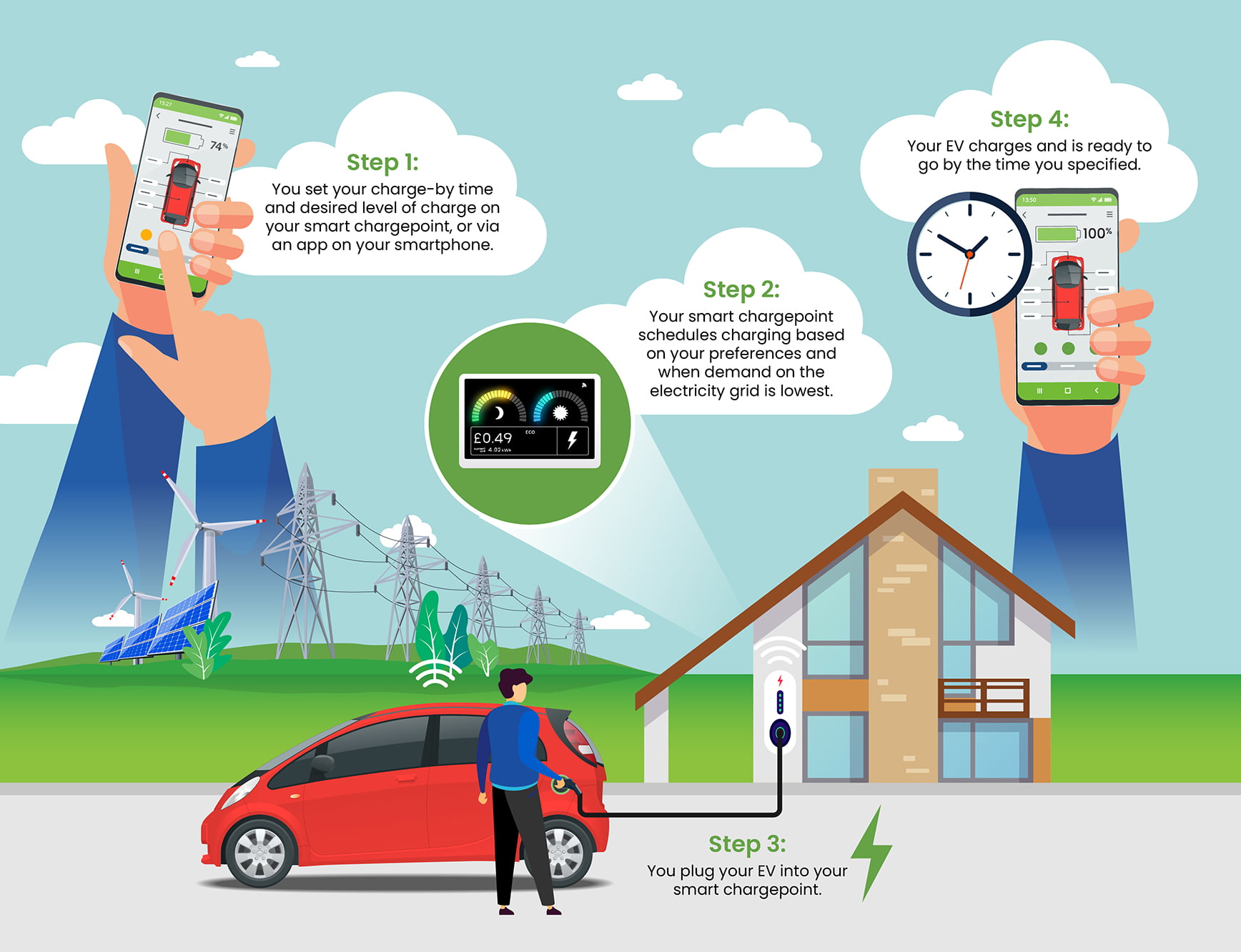No Products in the Cart

As the United Kingdom continues its transition towards a greener future, electric vehicles (EVs) play a pivotal role in reducing carbon emissions and promoting sustainable transportation. To complement this shift, the use of smart charging EV chargers is gaining momentum, offering numerous benefits to both EV owners and the overall energy grid. In this post, we will explore the advantages of adopting smart charging technology, particularly focusing on charging during off-peak periods.
Cost Savings:
One of the most significant advantages of smart EV chargers is the potential for cost savings. With off-peak charging, EV owners can take advantage of lower electricity rates during times of reduced demand. By scheduling charging sessions during these periods, individuals can optimise their energy consumption and save on overall charging costs. Many utility providers offer tariff structures that incentivise off-peak charging, further encouraging users to adopt smart charging practices.
Grid Optimisation:
Smart charging doesn't only benefit individual EV owners; it also contributes to the optimisation of the overall energy grid. By distributing charging demand across off-peak hours, the strain on the grid during peak times is reduced. This can prevent overloads, minimise the need for additional infrastructure investment, and enhance the reliability of the electricity supply. Ultimately, smart charging helps create a more resilient and efficient energy network.
Environmental Impact:
While the primary motivation for transitioning to electric vehicles is often the reduction of carbon emissions, the timing of EV charging also plays a crucial role in minimising environmental impact. Off-peak charging allows for a more seamless integration of renewable energy sources into the grid. By aligning EV charging with periods of higher renewable energy generation, such as windy nights or sunny afternoons, users can further reduce their carbon footprint.
Integration with Renewable Energy:
Smart charging technology enables seamless integration with renewable energy sources, such as solar and wind power. By scheduling charging sessions during times when renewable energy production is high, EV owners can contribute to a more sustainable energy ecosystem. This not only benefits the environment but also supports the UK's commitment to achieving net-zero carbon emissions.
Convenience and Control:
Smart charging systems offer users greater control and flexibility over their charging schedules. Through mobile apps or online platforms, EV owners can remotely monitor and manage their charging sessions. This allows for easy adjustments based on energy prices, grid demand, and individual preferences, providing a convenient and user-friendly experience.
Conclusion:
Embracing smart charging EV technology and utilising off-peak charging periods presents a win-win scenario for both EV owners and the broader energy ecosystem in the UK. By optimising cost savings, contributing to grid efficiency, minimising environmental impact, and integrating with renewable energy sources, smart charging plays a crucial role in shaping a sustainable and forward-thinking transportation landscape. As the electric vehicle revolution continues, adopting smart charging practices will undoubtedly play a pivotal role in driving the success of the green transportation movement in the United Kingdom.